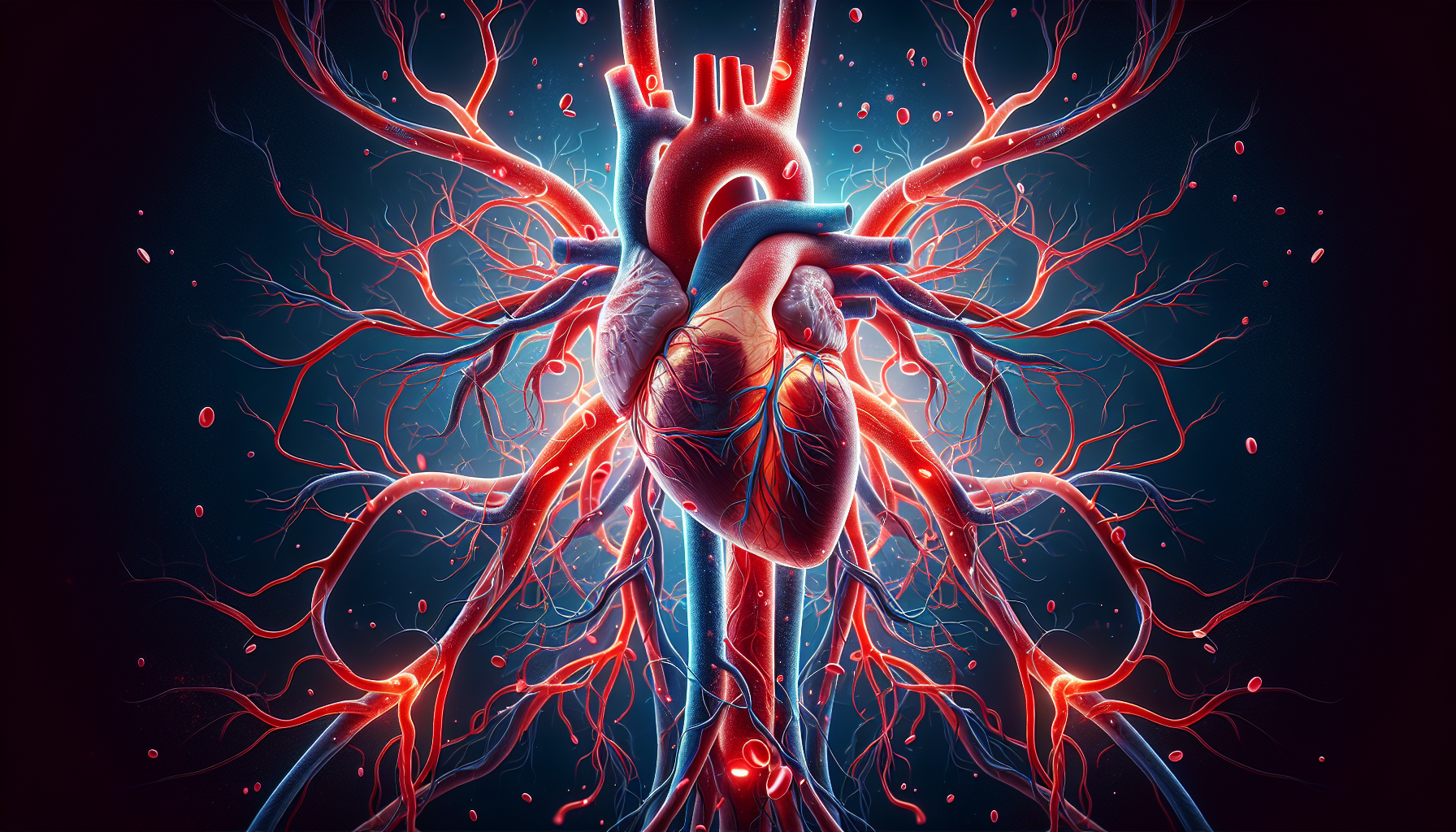Proper circulation and cardiovascular health are the bedrocks of overall well-being. The heart and the vessels that carry blood throughout the body form a system that is both intricate and vital. When this system is working optimally, it supplies organs and tissues with the oxygen and nutrients they need to function. However, when circulation is poor or the heart is not functioning well, it can lead to a host of health problems. Understanding the strategies for improving circulation and cardiovascular health is crucial in maintaining a healthy lifestyle.
The Importance of Cardiovascular Health
The cardiovascular system is a complex network that includes the heart, arteries, veins, and capillaries. It is responsible for transporting blood, which carries oxygen and nutrients to every part of the body. Good cardiovascular health means that this system is functioning efficiently, without undue stress or damage to its components.
Improving circulation and maintaining cardiovascular health is not only about preventing disease; it is also about enhancing energy levels, improving cognitive function, and achieving a better quality of life. For comprehensive information on maintaining a robust cardiovascular system, you can explore more on Cardiovascular Health.
Diet and Cardiovascular Health
One of the most powerful tools for maintaining good circulation and heart health is diet. Consuming a diet rich in fruits, vegetables, lean proteins, and whole grains while limiting the intake of saturated fats, salt, and sugars can lower the risk of developing cardiovascular diseases. The Role of Dietary Fibers in Cardiovascular Health Maintenance provides a deeper insight into how dietary fibers contribute to heart health.
In particular, the inclusion of omega-3 fatty acids, found in fatty fish and plant-based sources, has been shown to have significant cardiovascular benefits. To understand this better, consider reading about the Cardiovascular Health Advantages of Plant-Based Omega-3 Sources.
Exercise and Heart Health
Regular physical activity is another cornerstone of cardiovascular health. Exercise helps to improve the heart’s efficiency, lower blood pressure, and enhance circulation. Engaging in various physical activities, from aerobic exercises to strength training, can benefit the heart in numerous ways. For beginners, it’s essential to understand the fundamentals of cardiovascular fitness, as outlined in Engaging in Cardiovascular Fitness: A Guide for Beginners.
The American Heart Association recommends at least 150 minutes of moderate-intensity aerobic activity or 75 minutes of vigorous-intensity activity each week, combined with moderate- to high-intensity muscle-strengthening activity on at least two days per week.
Managing Stress for Heart Health
Chronic stress has been linked to an increased risk of cardiovascular disease. Stress can lead to behaviors and factors that increase heart disease risk: high blood pressure and cholesterol levels, smoking, physical inactivity, and overeating. Learning stress management techniques such as meditation, deep breathing exercises, and yoga can have a profound impact on cardiovascular health.
For those interested in the scientific underpinnings of stress and heart health, a study published in the Annals of Behavioral Medicine found that stress management interventions could lower blood pressure and improve psychological well-being in patients with heart disease.
Sleep and Cardiovascular Health
Adequate sleep is vital for heart health. Chronic sleep deprivation can lead to high blood pressure, atherosclerosis, heart failure, and heart attack. Adults should aim for 7-9 hours of quality sleep per night. The link between sleep and heart health is explored in detail in the article Cardiovascular Consequences of Chronic Sleep Deprivation.
Smoking Cessation
Smoking is a major risk factor for cardiovascular disease. The chemicals in tobacco can damage the heart and blood vessels, leading to narrowing of the arteries (atherosclerosis), which can ultimately lead to a heart attack. Quitting smoking can drastically reduce the risk of heart disease and improve overall cardiovascular health.
Resources such as SmokeFree.gov provide tools and tips for those looking to quit smoking, offering personalized plans and support to help individuals break the habit.
Regular Health Screenings
Regular health screenings can detect cardiovascular issues before they become severe. Blood pressure, cholesterol levels, and other tests can provide insight into heart health and allow for early intervention. The benefits of regular cardiac screening, especially for high-risk individuals, cannot be overstated, as discussed in The Benefits of Regular Cardiac Screening for High-Risk Individuals.
Conclusion
The journey to improved circulation and cardiovascular health is multifaceted. It involves a balanced diet, regular exercise, stress management, adequate sleep, smoking cessation, and regular health screenings. Each of these strategies plays a critical role in maintaining a healthy heart and vascular system.
For additional insights and resources on heart health, consider visiting the American Heart Association’s website, which offers a wealth of information on cardiovascular health, including guidelines, research, and community programs.
Remember, the choices you make every day can have a lasting impact on your heart health. It’s never too late to start making positive changes that will benefit your cardiovascular system and your overall well-being.



